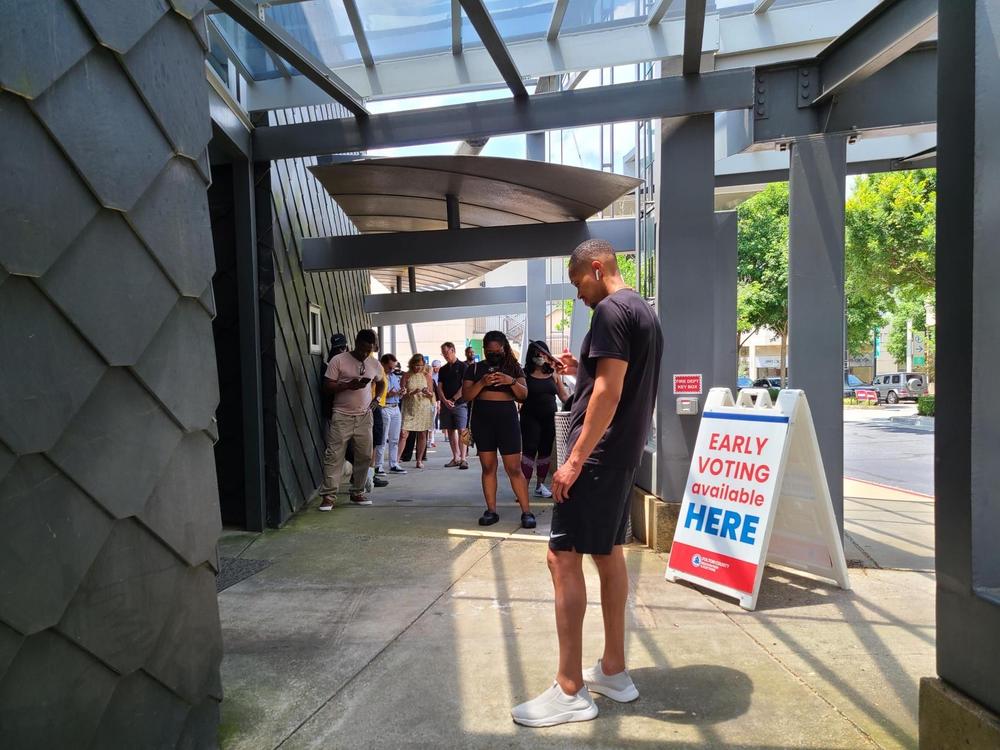
Caption
Atlanta voters line up to cast ballots outside an early voting polling place in Buckhead on Friday, May 20, 2022. The early voting period ahead of the May 24 primary saw record turnout in Georgia.
Credit: Amanda Andrews / GPB News

